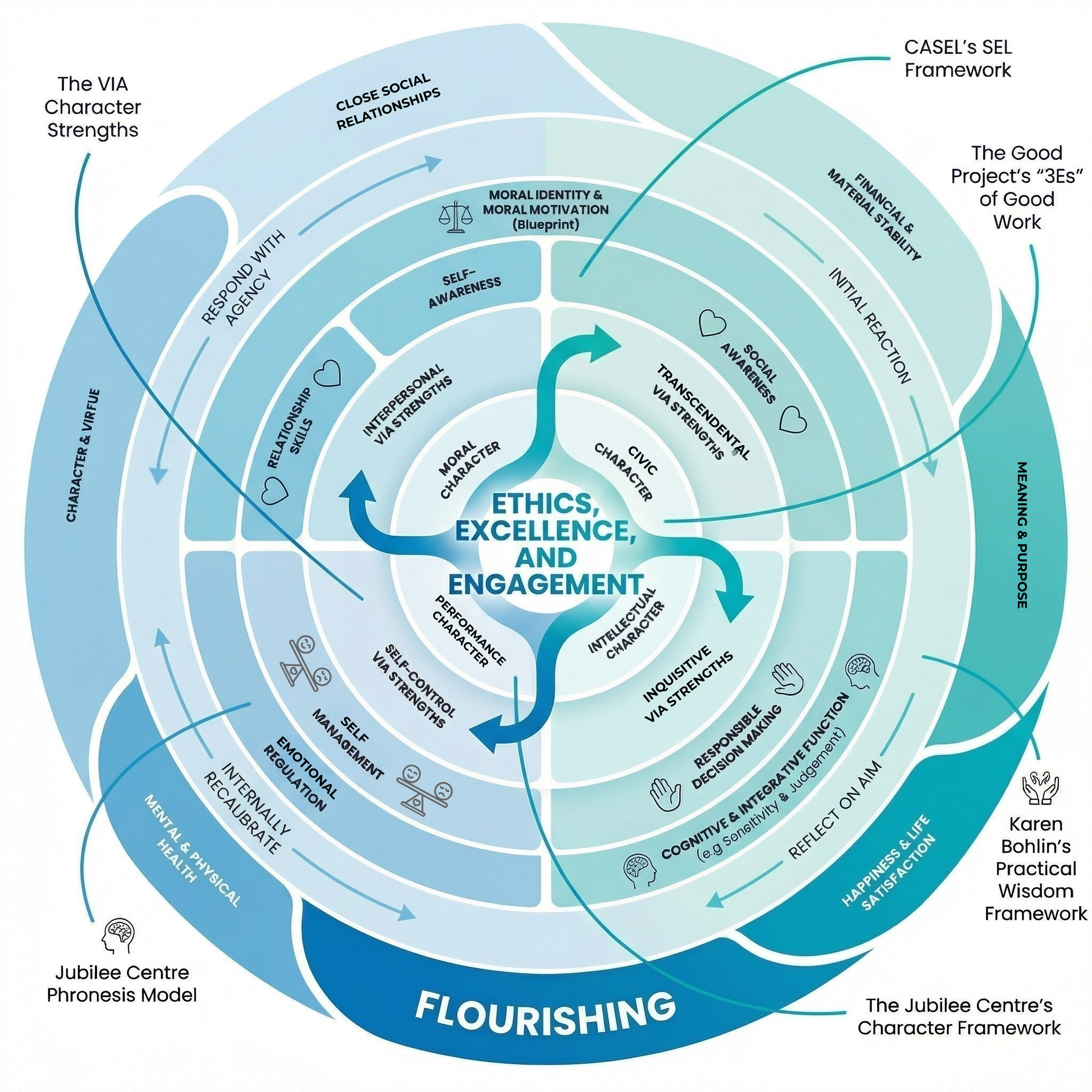by Danny Mucinskas
We live in an era of rapid change. Events of the past few years alone have demonstrated that for humanity to proceed with “business as usual” is not only unrealistic but is actually not possible. Climate change, new technologies (such as generative AI), and demographic shifts are set to touch all of our lives, even in the short-term. Economic, political, and social systems are being reshaped by necessity. While it can be easy to forget that we are living through exceptional times, our lives will be altered in concrete ways in the years and decades to come, including at work and in workplaces. According to the Future of Jobs Report 2023, 23% of jobs are expected to change in the next 4 years alone, which will require people to respond by changing roles and even career fields. Well-executed programs and frameworks that will help workers handle transitions in thoughtful ways will be in demand.
Against this backdrop, from 2020 to 2023, a team from Project Zero (PZ) at the Harvard Graduate School of Education developed a course to help working adults process and manage changes in their careers. Made possible by funding from the Singapore Institute of Management (SIM), which collaborated with the PZ team throughout the project, the course is titled “Navigating Changes Successfully at Work.” It brings together insights from both the Learning Innovations Laboratory, under the direction of Marga Biller, and from The Good Project, with contributions led by Danny Mucinskas and Howard Gardner. (See the previous two blog posts that have been written about this effort here and here.) The course has been piloted, refined, and offered iteratively with Singaporean mid-career adult learners thanks to SIM’s connections and partnerships, including with SIM employees, unemployed professionals, and a group of facilitators who have now been trained to teach the course independently.
Based on the activities of this project, PZ has released a new white paper that details the background, creation process, and content of the course, as well as the challenges encountered and possible future directions. The paper is intended for a wide audience, including scholars, learning designers, and policymakers who may be interested in this particular set of ideas and in general professional development opportunities for workers.
As the paper explains, the course is structured as a series of four 3-hour session meetings, during which participants are led through a series of discussion and reflection prompts about the meanings of two core frameworks developed in recent decades at PZ: Unlearning and Good Work.
Regarding Unlearning, participants explore three different lenses that may uncover ways of thinking and doing that “get in the way” of adapting effectively to change. First, the course looks at Mindsets, or the sets of assumptions and patterns of thinking we have about the world and how it functions. Specifically, the course prompts learners to uncover their values (such as honesty or accomplishment); to map their various identities; and to consider how expertise may help or hinder transitions. Participants then think about how each of these may need to shift. Second, the course covers Habits by analyzing how habit cycles function as patterns of cues or triggers, regular routines, and rewards or goals, and how these cycles may need to shift when our goals change. Third, the final session reviews Systems, zooming out and asking learners to diagram their learning ecosystem and also diagnose their alignment or misalignment with the views and goals of others.
Throughout the sessions, learners are furthermore asked to consider the relationship between the lenses of Unlearning and the 3 Es of Good Work: Engagement (a sense of connection or enjoyment to work), Excellence (quality, involved in work that is well-done or meets a certain standard), and Ethics (social responsibility related to concerns of right and wrong). Course participants think about their own personal manifestations of Good Work that align with these elements. At-home extension activities completed between sessions allow for application of the concepts to learners’ daily lives and work.
The following video, developed by the course team, provides an overview of how Unlearning and Good Work may be helpful in moments of workplace change and also may interact with one another.
Several learning design principles guided the structure, pace, and activities included in the course, namely:
Collaboration, to increase participant engagement and to ensure diverse perspectives are shared;
Learner-centric facilitation, focusing on participants’ personal experiences rather than knowledge of the instructor;
Relevance to relatable, real-life scenarios; and
Metacognitive evaluation, in which participants reflect on their learning over time.
Based on the Unlearning and Good Work frameworks from this course, a team at SIM is continuing to design new learning experiences, including a core skills program focused on outcomes like learning agility and self-management. Furthermore, the standalone course will continue to be offered to Singaporean mid-career learners via SIM’s partnership with e2i as well as via SIM’s usual public enrollment and corporate channels.
As we look ahead at the trajectory of this course and its potential to aid adult learners, we recognize that we live in a continuously changing world with concomitant workplace transitions. The PZ team is therefore considering additional audiences who may benefit from the learning materials, including younger learners (e.g., college seniors) and new cohorts of adult workers (e.g., participants drawn from a single company or organization). Additionally, in order to ensure that the course has maximum impact and staying power, it is important for the ideas to be periodically reinforced. This goal may be realized through additional follow-up workshops or the establishment of a community of learners who continue to discuss their workplace transitions with one another beyond the conclusion of the formal course.
We welcome comments below and look forward to continuing to share updates about the direction of this work in future posts.





